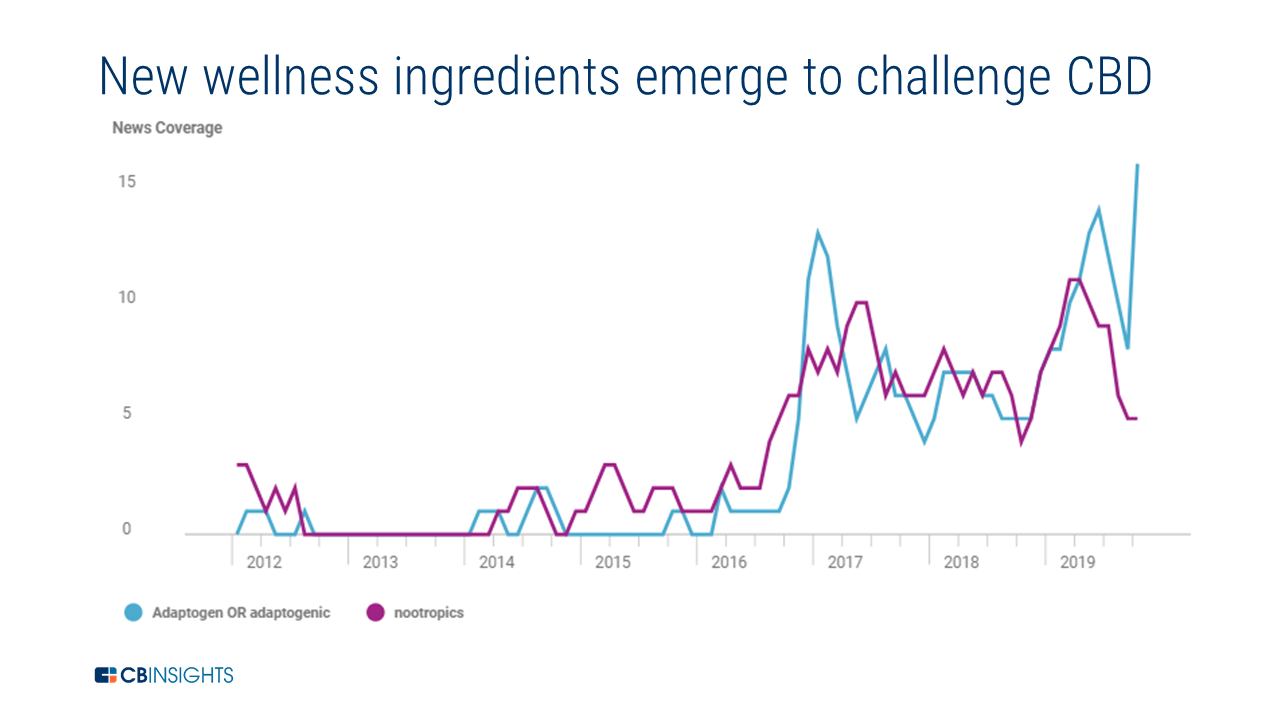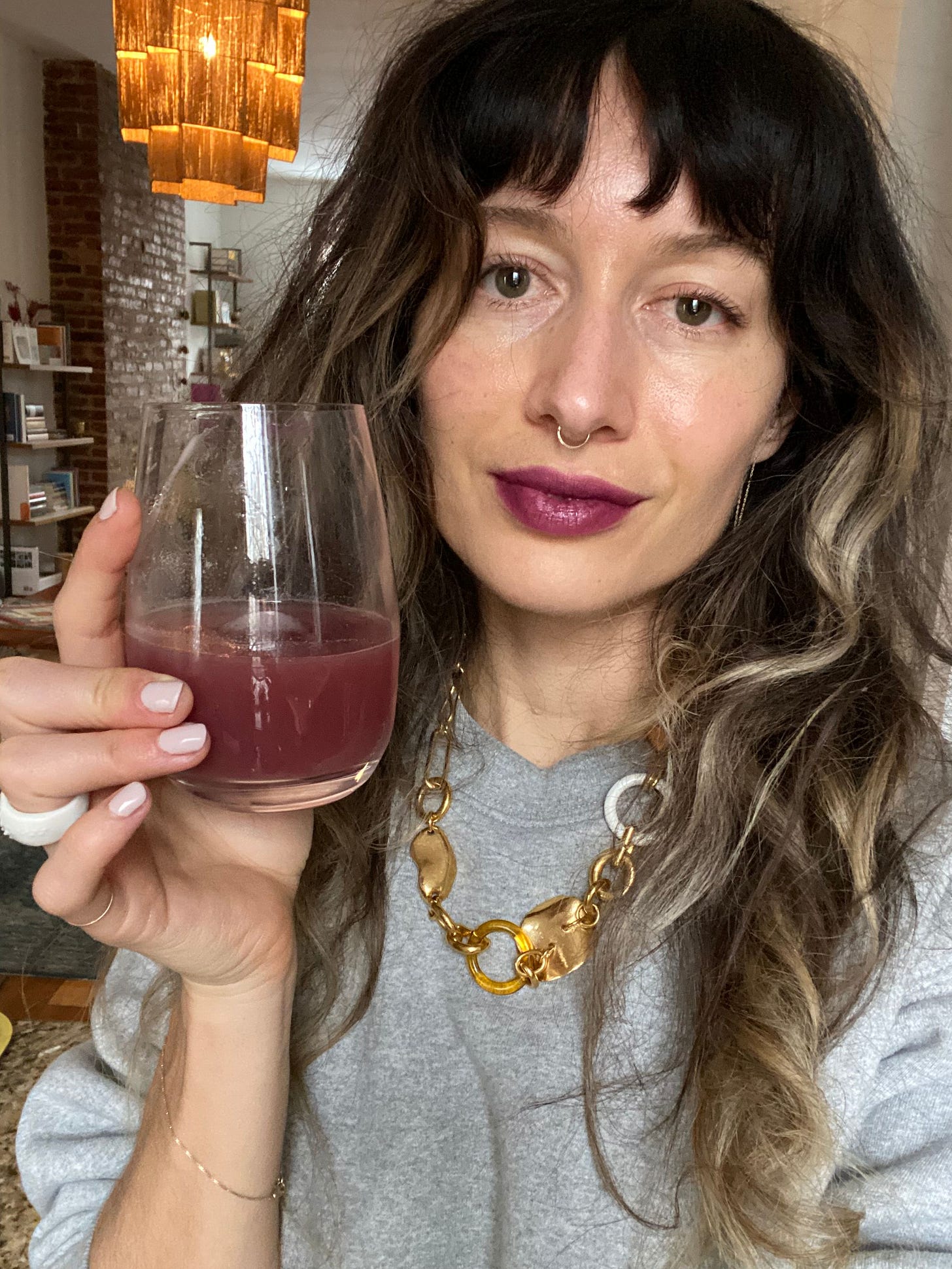I’m An Herbalist & I’ve Never Purchased Skincare that Contains Adaptogens
On adaptogenic misinformation, herbal fear, hype, hope, and bubbles.
While shopping for eyeshadow recently — inspired by the end of summer and a maybe-desperate clinging to color — I noticed that Sephora’s search tool includes the ability to filter by products that contain the ingredient adaptogens. I did not do this, because I’ve never purchased a skincare product that contained adaptogens (at least not intentionally). I don’t believe any of my skincare routine contains adaptogens and I don’t believe there’s any — or, at least, any compelling — research that suggests using adaptogens topically is beneficial. Herbs like vulneraries and emollients and astringents are a different story. (Stick with me.)
The term adaptogens is not a synonym for herbs and that’s a subject I’ve written about so many times that I almost didn’t write this piece. But the misuse bothers me no less every time I encounter it and so, I persist. The same day as The Sephora Incident, Dr. Mark Hyman referred to “various adaptogenic mushrooms” (only one mushroom is an adaptogen1) and also to adaptogens as compounds (they’re not). I like Dr. Hyman and respect his work. I think he’s doing great things for a ton of people. I also wonder why, with the resources that these brands have, they continue to miscommunicate this point. (Speaking of resources and misinformation, here’s my fact-checked version of Dove’s recent “plant-based adaptogenic” bodycare launch.)
My hunch is that part of the problem is simply a lack of understanding. For example, I’m certain that Dr. Hyman would prefer to know, and speak correctly about the point. On the other hand, I’m certain that Dove and Sephora are at least somewhat more interested in capitalizing on the trendy term than in being accurate. (I also like Sephora and shop there almost exclusively for skincare so this is not a Sephora takedown.) The combination of marketing — “those stress-busting, plant-based wonder ingredients” — and misunderstanding has us in a few binds. (Do yourself a favor and don’t read that article.)
On one hand, rising tides raise all ships and the greater the awareness of adaptogens, the greater the likelihood that folks are going to use them, and maybe even intend to understand what they are and what they actually do. On the other hand, misuse of the term is simply misinformation. Many great herbs, like the turmeric in Sunday Riley’s CEO oil2 which comes up when one filters by adaptogens on Sephora, are not adaptogens. Therefore, they don’t do what adaptogens do. So people are buying them for the wrong reasons, and not getting the results they expect. This is disappointing for consumers, but it also undermines herbs that then get a bad rap as ineffective. And just when they’re enjoying a bit of a heyday. Meanwhile, the world’s herbalists are in the back row either shaking their heads or futilely trying to be heard over all of the commotion.
On the point of brands intentionally misusing the term in order to capitalize on a trend aka sell a thing, I’ve been wondering how eager people are to buy a product that contains adaptogens versus a product that contains herbs. I know the answer is that enthusiasm for the former is phenomenally higher than the latter, but I’d love to see some side-by-side comparisons. Because, this hooks directly into another thread I’ve been following in recent years: our fear of herbs.
One of the more common questions I’ve been asked consistently is some version of, Aren’t herbs kind of dangerous though? Don’t we have to be pretty careful with them? I feel comfortable with OTC and even prescription meds, but adding herbs into the mix just seems … risky.
I sympathize here, to a point. (Sympathy isn’t my strong suit; I’m working on it.) Herbs seem new and dubious because they are new to many people, especially younger generations in Western society. But, herbs certainly aren’t new to humans, or animals, or those who continue traditional practices of using the environment for health which is about 80% of the world’s population.3 (“Herbs” aren’t only plants and “herbalism” is far more holistic than is commonly recognized. We use everything from nutrition to community building and time management tips, in addition to recommending herbs, as treatment.)
So, it’s fair that herbs make many people uneasy. We have a lot to relearn. That said, one has to wonder at the massive lack of trepidation about adaptogens. I’ve certainly never been asked if they’re dangerous. Quite the opposite, actually; I took the term off of our cafe-apothecary menu because it was the only thing people wanted — “I’ll take whatever has adaptogens in it” — and they definitely didn’t want it with a side of reeducation. (I did the same thing with CBD.)
At this stage, what we’re clamoring for is practically a manufactured term. More accurately, it’s a term that’s been co-opted and manipulated in so many ways that it hardly resembles its former self. To correct those excited about adaptogens is to not only burst a bubble, but also risk generating pessimism about the potential of plant-based remedies. The wellness industry has given us a natural cure for stress (in convenient pill form, no less) and you’re going to take it away? You can keep your definitions and normalizing and non-specifics and lifestyle adjustments and whatever. And so goes the story of every other quick fix that wasn’t.
4 To fact-check the issue is also, in a way, to take down herbs, which is definitely not something I want to do nor something they need. To remedy the issue requires reeducation and from someone whose main product is education, let me tell you it’s a hell of a lot harder to sell than a product. Especially a product that promises what adaptogens do.
I hope that enthusiasm for nature-based wellness5 continues, and that as awareness and use of herbs grow, understanding does too. With that, I hope that brands and consumers both take responsibility for what we’re buying to put on and in our bodies. (General reminder to always read the ingredients, not the marketing material around them.) I hope that after adaptogens, we’re all psyched about nervines and carminatives and bitters, especially the last one. I’m still praying that bitters are the next probiotics.
Meanwhile, I’ll be here bursting (and consuming) adaptogenic bubbles.
~
If you like this topic, please consider my Herbalism for Hair, Skin & Nail Health class.
Cordyceps. Reishi is a “possible” adaptogen.
For the record, I quite like Sunday Riley products and have used many for years. I also love turmeric, and take it daily.
Yes, that's code for herbalism, because stigmas.







I’ve used a fair bit of skincare (been around the sun quite a few times😜) from $ to $$$$$$$$ and from natural to far from it. I’m returning to a range with adaptogen - Moon Juice - as it’s probably been the most impactful. Really not sure if it’s the adaptogen or not, but it does a great job.